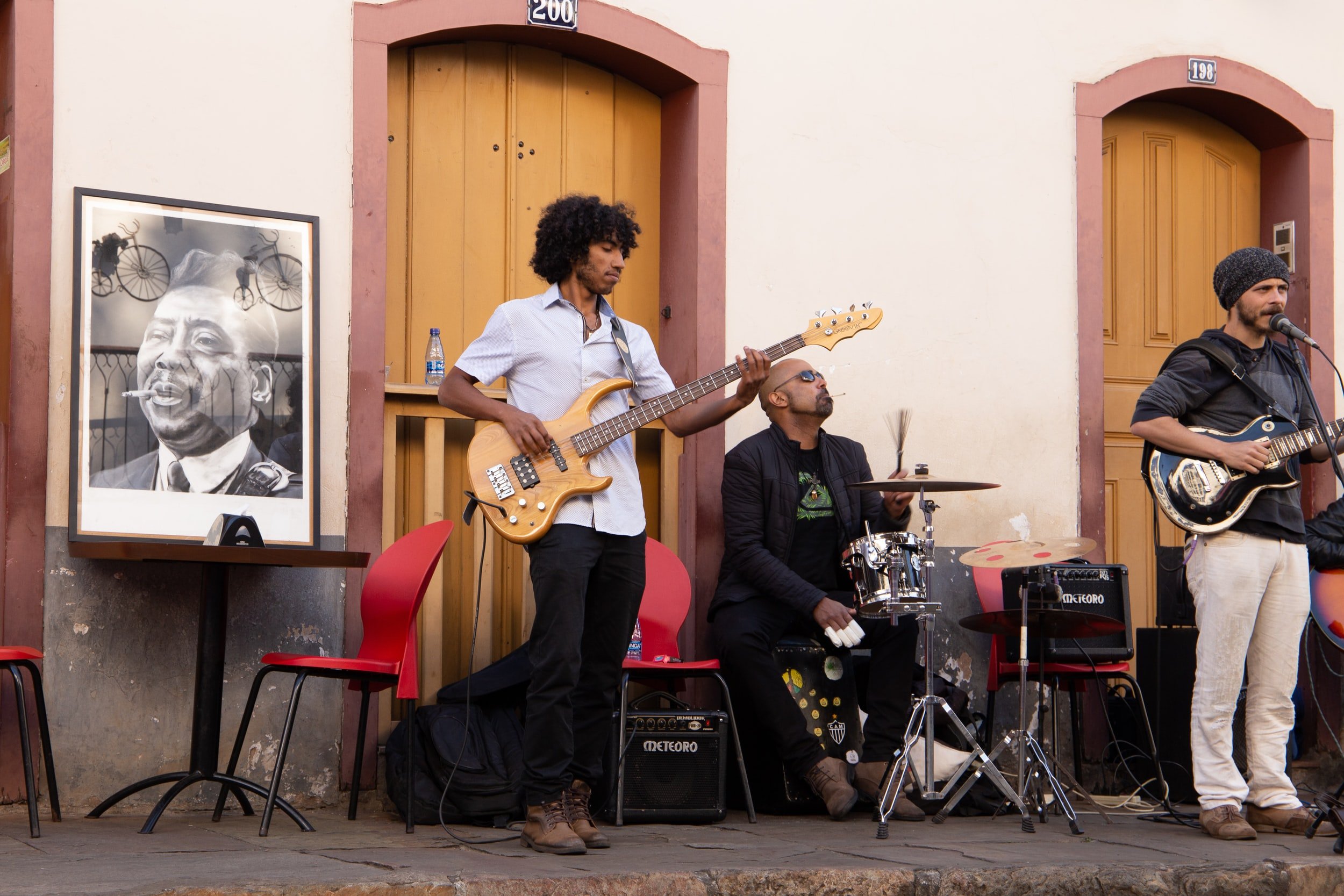


DRUM LESSONS
Follow the rhythm of your own drum.
At the basis of all musical study is the component of rhythm.
Not only is establishing a steady overall beat important, but also executing rhythmic variations within that beat. This may sound rather complicated, but in a drum lesson, this can become a fun and interactive experience for a student of any level. People of every age have a certain fascination with percussion instruments. And why not? They are fun to play, quite approachable, and instantly gratifying. In fact, even without music lessons, a person can create interesting rhythms and patterns on simple percussion instruments.
Here are five things you can learn in one drum lesson:
TECHNIQUE
With every musical instrument, there are components of correct technique that teachers establish and build upon in future lessons. Though drums and percussion instruments can easily make sound using incorrect techniques, this instrument group is enjoyed most using a proper grip, posture, wrist motion, etc. Drum instructors will introduce and demonstrate how to execute these points, and the student will have a newfound understanding of the fine movements that go into playing correctly.
NOTE READING
Drummers can learn to read notes? A resounding “yes” is in order! Drummers and percussionists use musical notation just like other instrumentalists. Though drum sheet music may look a bit different than piano or strings music, the same note values and rhythm notations are used amongst all instruments.
COORDINATION
From simple rhythms to complex ones, playing the drums and other percussion instruments requires good coordination and control of movement. This starts with possibly one drum and a steady beat in the first drum lesson and progresses to the addition of more drums and further subdivisions of a beat. For students of all ages, including small children and adults, this aspect of playing the drums is not only advantageous to build from a physical perspective, but also from a mental coordination viewpoint.
CREATIVITY
Drums and percussion instruments naturally lend themselves to creative expression. Also, rhythm is at the heart of every person and can be explored in the study of drums. A drum instructor will have many exercises for their students centered around ways to vary rhythmic patterns within a steady beat, which reinforces the individuality and improvisational spirit of percussion study.
BOOK A LESSON TODAY!
Some opportunities for Drum students include:
Two Performance Recitals (Summer and Winter)
Family Friendly Open Mic Events
Audition Preparation and Opportunities
Community & Professional Performance Opportunities
Scholarship Opportunities
Gwinnett School of Rock (Summer, Fall & Winter Sessions)
and MORE!
STILL HAVE QUESTIONS?


